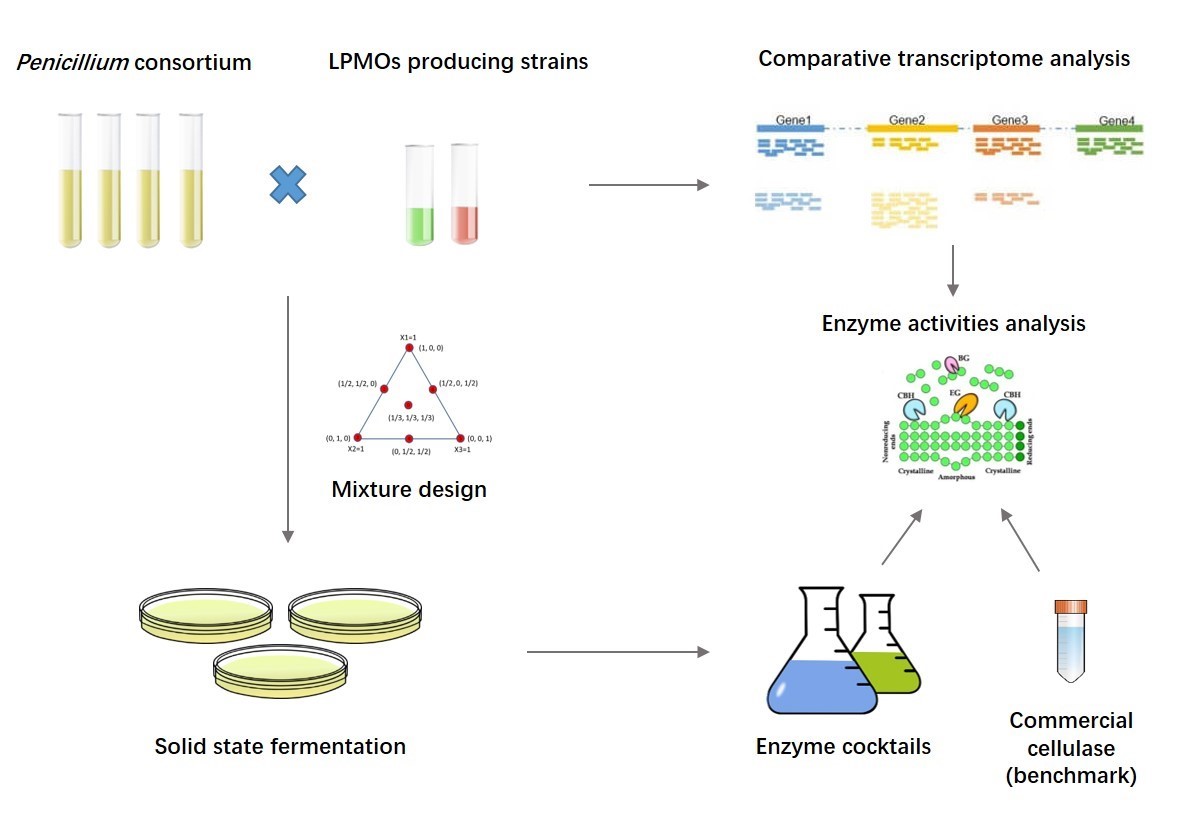Lignocellulosic biomass is the most abundant feedstock in production of bio-based fuels and materials. Enzyme "cocktail" is considered as a powerful tool to allocate diverse specific activities in one matrix.
Recently, researchers led by Prof. QI Wei from the Guangzhou Institute of Energy Conversion of the Chinese Academy of Sciences have reported an efficient cellulase "cocktail" produced by co-cultivation of several Penicillium strains with lytic polysaccharide monooxygenases (LPMOs) producing strains, which achieves excellent hydrolysis yield of pretreated poplar materials.
The study was published in Chemical Engineering Journal on Sept. 22.
"Fermentation of fungal consortium is an effective approach to improve the yield of enzymes and coordinate the proportion of enzyme system through the synergistic effect of mutual benefit and symbiosis among multiple strains," said Prof. QI, corresponding author of the study.
The researchers investigated co-fermentation of four kinds of Penicillium strains with Thermoascus aurantiacus and Neurospora crassa by mixture design methodology.
Taking the commercial cellulase as benchmark, they conducted comparative analysis of the enzyme components, activities and the strains transcriptome. They found that the enzyme "cocktail" from Penicillium consortium presented superior expression on diverse Glycoside Hydrolases (GHs), Glycosyl Transferases (GTs), Polysaccharide Lyases (PLs) and other auxiliary enzymes, accelerating the chemical bonds breaking of hemicellulose and cellulose fractions.
In order to improve synergistic enzyme actions, the researchers also developed a new formulation by blending fermented enzyme cocktail with commercial cellulase in an appropriate proportion. The pretreated poplar was hydrolyzed to release glucose at an yield of 88%, with an increase of 32% compared to using commercial cellulase alone.
"The proposed fungal consortium and enzyme formulation have good potent to be applied in industry as a green and powerful tool, which can enhance lignocellulose biodegradation and consequently reduce enzyme cost. It is important for sustainable development of agriculture and forest wastes biorefinery, as well as the production of biofuels and materials," said Prof. QI.







